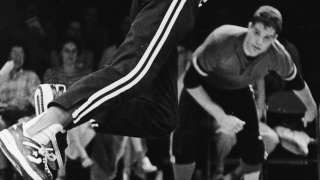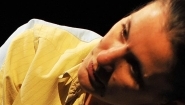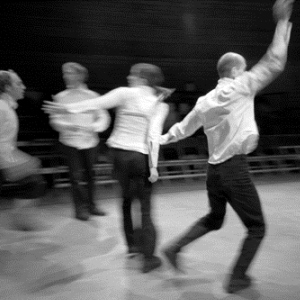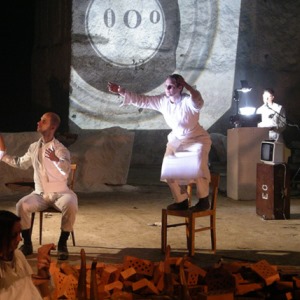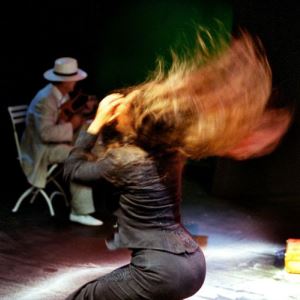Goat Island was a Chicago-based collaborative performance group that began in 1987. They made nine intimate, low-tech and intensely physical performance works that toured nationally and internationally. Lin Hixson was the group’s director. Performer/collaborators included Matthew Goulish, the brothers Timothy McCain and Greg McCain (1987–95), Joan Dickinson (1989–91), Karen Christopher (1991–2009), Bryan Saner (1995–2009), Mark Jeffery (1996–2009), and Litó Walkey (2001–9). The company frequently taught classes and workshops and presented collaboratively composed lectures, and they made four short films with the UK director Lucy Cash. Their eighth piece When Will the September Roses Bloom? Last night Was Only a Comedy appeared in the Venice Biennale 37th International Theatre Festival. Routledge published Small Acts of Repair: Performance, Ecology, and Goat Island, edited by Stephen Bottoms and Matthew Goulish, in 2007, a volume that collects much of the company’s writing. The company decided to end by making their final performance, The Lastmaker. They presented the last performances on 27 and 28 February 2009 at the University of North Carolina, Chapel Hill. Matthew Goulish
Image: Goat Island’s The Lastmaker. Photograph © Hugo Glendinning.
**EXCLUSIVE NEW FEATURE** Find out more about Goat Island via an RPA partner journal

